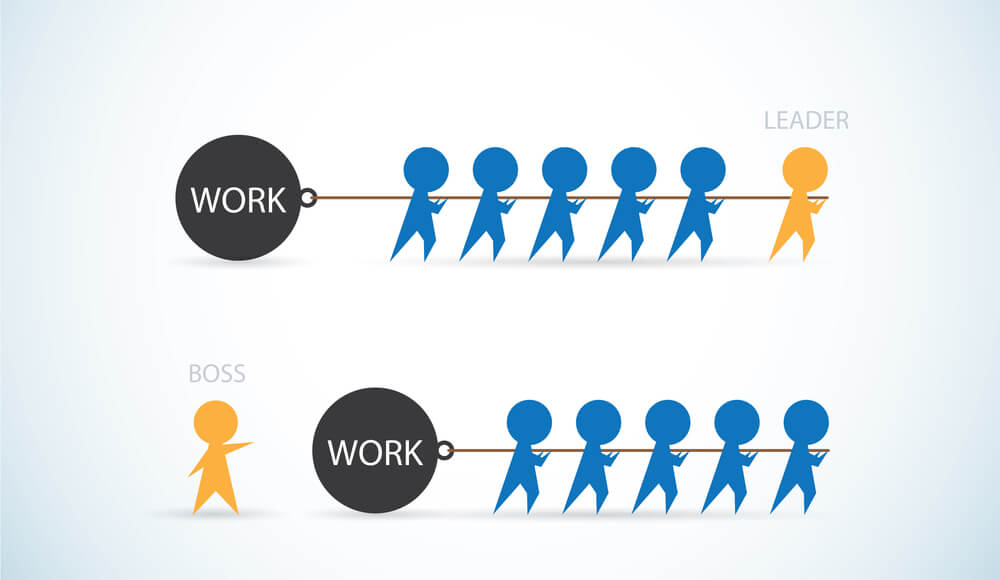Perhaps no concept in business is more essential, and at the same time so colossally misunderstood, than delegation.
Professor Jeffrey Pfeffer, of Stanford University, accurately summed up the responsibility of a leader:
“Your most important task as a leader is to teach people how to think and ask the right questions, so that the world doesn’t fall apart if you take a day off.”
Perhaps no concept in business is more essential, and at the same time so colossally misunderstood, than delegation. Any rational person knows that they have strengths and limitations. It follows, that tasks should be divvied based on each employees abilities.
Yet for some reason, many business struggle to properly delegate—and the consequences are severe. Sloppy projects. Missed deadlines. Angry clients.
Lather, rinse, repeat.
From my experience, these businesses fail for one simple reason: They fail to realize that proper delegation is a fine art, one requiring patience and dedication to mastery.
To help shed some light, legendary personal development guru, Michael Hyatt, broke down this art into five levels:
Level 1: Do exactly as I say – Unfortunately, this is the most common level of delegation. While one might think it’s necessary for brand new employees, it doesn’t allow for any growth – neither for you nor your employees.
Level 2: Ask what’s next – As is the case with Level 1 delegation, this level allows for no growth and no responsibility. The only difference? You’re giving them the “responsibility” to ask you what to do next.
Level 3: Recommend a course of action – This is really where delegation begins. Thinking and planning are shared activities at this level. Input is valued, and the employee is shown that his or her opinion will be considered.
Level 4: Make the decision, then immediately tell me what you did – Additional, but limited, responsibility is transferred. There is more trust and confidence placed in the person or team, and allows them to choose and complete the next task without first consulting top brass.
Level 5: It’s all you – Full responsibility transferred to the employee/team. This is the definition of true delegation, a relationship of complete and total trust. It’s at this level that employees and companies really start to grow. Employees are given the ability to think and act completely on their own, confident that they have the support of their superiors.
Upon closer inspection, it’s understandable why certain companies flop when trying to delegate, while others are successful.
Companies run by low-level “leaders” chart their course of delegation from Level 1. More often than not, they never get off that island. Once that inability to trust has taken root, it’s near impossible to uproot it, and they cannot properly blossom.
Those headed by great leaders, on the other hand, begin their relationships on Level 3. The initial interaction is established on a foundation of trust and respect, with only upwards to build. They understand the art of delegation.
So, how does one set out mastering the art of delegation? Here are a few Ptex Practical Pointers to help you and your team maximize their capabilities:
- Learn to Trust – As a business owner, it can be hard to trust. Ultimately, you are responsible for whatever happens in your business – whether good or bad – and it’s quite difficult to relinquish control of your reputation to someone else. But that’s how businesses grow and thrive. True leadership means acknowledging your limitations and the strengths of those around you.
- Crystal Clear Communication – The foundation of any relationship, whether in business or in life, is mastering the art of communication. When delegating, it is critical to be abundantly clear as to which level you’re delegating on. Make sure everyone understands what’s expected of them.
- Inspect what you Expect – Don’t look over employees’ shoulders or watch their every move. Let people work, give them space. But as the leader, realize it’s your company and your vision. To see the vision, you have to share the vision. Check in periodically with your employees, or have them update you. This will help everyone – from top to bottom – stay on point and in line with company goals.
Your job as a leader is to develop people.
Don’t look at delegating as simply passing off work that you don’t want to do. Rather, it’s a chance for everyone—yourself included—to stretch their skills and judgement.
When bringing out the best in others, don’t be surprised if you end up bringing out the best in yourself.
Onward and Upward,
Meny Hoffman
P.S. Great delegation is based on masterful leadership. To find out when our next Leaders Forum event is taking place, click here.







